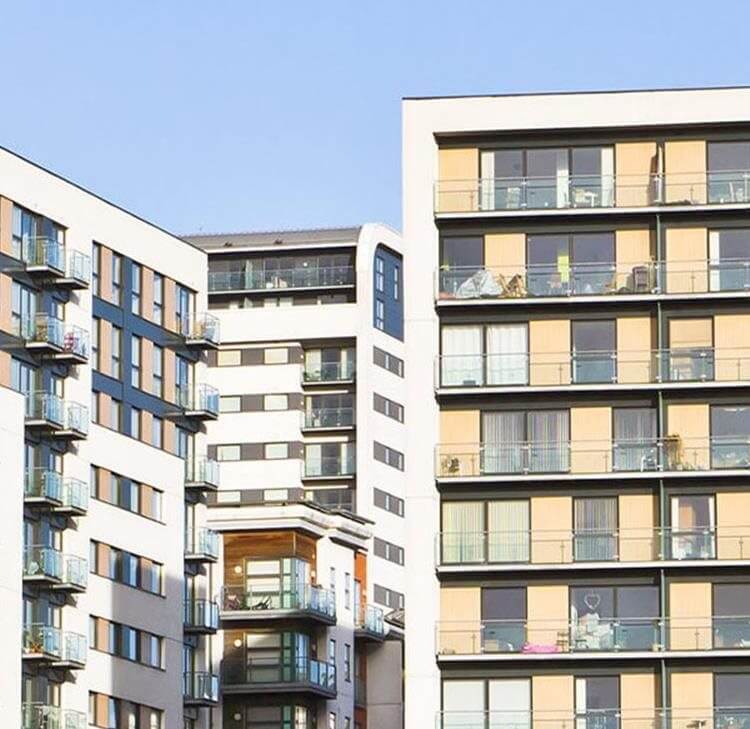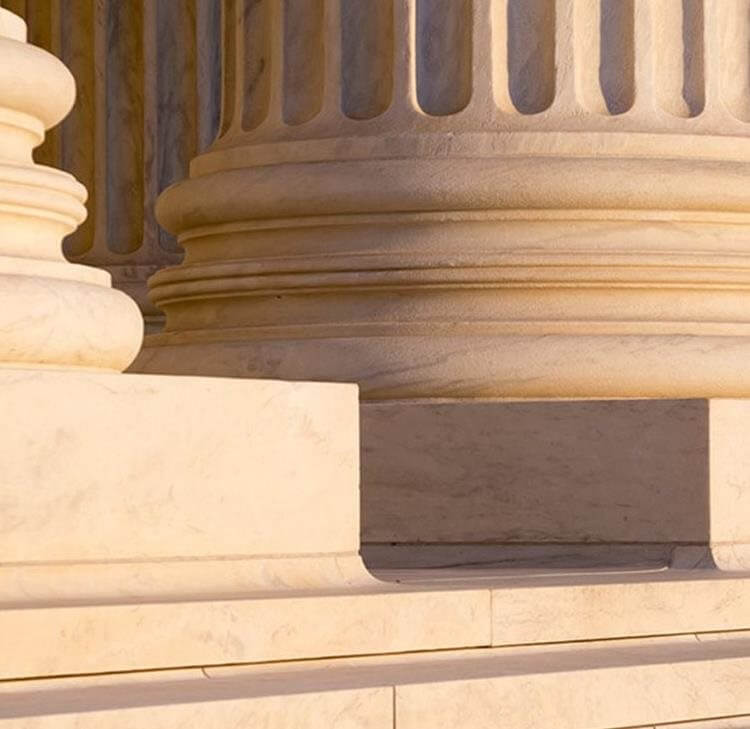There has been a series of further decisions involving Covid BI claims handed down in the last few months.
Court of Appeal decision in Various Eateries v Allianz
As the only case remaining out of the consolidated Stonegate v MS Amlin / Greggs v Zurich claims, Various Eateries was heard in the Court of Appeal in November 2023.
Allianz was appealing on grounds of: (1) aggregation and (2) the proper construction of the scope of cover of the Prevention of Access Non-Damage clause regarding the period of indemnity.
Various Eateries was cross-appealing on one ground: whether aggregation should be on a per premises basis.
In a decision handed down earlier this year, the Court of Appeal dismissed both Allianz’s appeal and Various Eateries’ cross appeal. Lord Justice Males gave the leading judgment in the Court of Appeal, with Lord Justice Newey and Sir Julian Flaux in agreement.
Aggregation – Lord Justice Males considered the wording ‘arising out of’ and the application of the remoteness principles. He concluded that the meaningful explanation for Various Eateries’ losses was not the initial infection in Wuhan (which was too remote) or the introduction of the virus into the UK (which lacked a sufficient causal connection) but rather the later UK Government response to what happened thereafter.
Scope of Cover under Prevention of Access – Allianz had argued that only losses suffered during the policy period could be recovered. Lord Justice Males agreed with the decision of Mr Justice Butcher at first instance that where there is cover for a hindrance or prevention of access that occurs during the policy period, the clause does not require any prevention or hindrance that occurs after the end of the policy period to be disregarded, noting that the construction arguments advanced by Allianz would lead to odd and paradoxical results.
Per Premises Aggregation – Hales LJ agreed with the first instance findings that there was no justification either in the policy wording for the £2.5m limit to apply per premises.
As a result, the position remains as per Mr Justice Butcher’s first instance judgment of October 2022 in which he held that there were three occurrences for the purposes of aggregating Various Eateries’ losses, these were:
- the UK Government’s instructions from 16 March 2020 to avoid social venues;
- the Government’s closure of restaurants from 20 March 2020; and
- the imposition of early closing and other restrictions on restaurants from 24 September 2020, each occurrence with a £2.5m limit (not £2.5m per premises) under the Allianz policy.
Gatwick Investments & Others v Liberty Mutual Others
This group of 5 cases against Liberty Mutual Insurance Europe (‘Liberty Mutual’) and other insurers was heard sequentially in October 2023. All cases concerned whether Prevention of Access (Non-Damage) (‘POAND’) / NDDA clauses respond to Covid 19.
POAND (or NDDA) wordings respond to a prevention or hindrance of access or use of the insured premises following action taken by an authority in response to, typically a danger or disturbance within a one-mile radius.
Similar NDDA wordings were included in the FCA Test Case of 2020 where the Divisional Court found that such wordings did not respond. Importantly, the FCA did not appeal that finding so the issue was not considered by the Supreme Court in early 2021.
However, the Supreme Court’s decision in the FCA Test Case on causation relating to ‘disease’ wordings, that each individual case of illness resulting from Covid 19 was a separate and equally effective cause of the government action, meant that logically the same causation analysis ‘could’ apply equally to NDDA / POAND clauses.
Hence this gave rise to these latest proceedings against Liberty Mutual and other insurers.
The issues
The following key issues were before Mr Justice Jacobs:
- Causation – does the Supreme Court’s concurrent causation analysis apply equally to NDDA / POAND wordings?
- Statutory Authority – does the undefined term ‘Statutory Authority’ include central government?
- Aggregation – are the sub-limits of indemnity per government action and per insured entity and/or per premises or in the aggregate?
- Furlough – are insurers entitled to take the benefit of furlough payments received by the insureds?
Previous case law
In considering the above issues, Mr Justice Jacobs was asked to consider and/or go against recent first instance decisions of fellow Commercial Court judges in previous Covid 19 business interruption cases.
In his judgment, Mr Justice Jacobs was clear to cite ample authority that as a matter of ‘judicial comity’ he should follow the decision of another judge at first instance unless he was convinced that the judgment was wrong.
Further, in the context of Covid-19 business interruption cases, there was an obvious need for coherence, certainty and cost-effective use of resources, such that issues already decided at first instance should not be departed from by subsequent first instance judges without very good reason.
Decision of Mr Justice Jacobs
Mr Justice Jacobs held as follows:
- The Supreme Court ruling in the FCA Test case on causation applied equally to NDDA / POAND clauses (as it did to ‘disease’ clauses);
- The UK Government was a ‘Statutory Authority’ within the meaning of the NDDA / POAND clause.
- The Liberty Mutual NDDA / POAND clause therefore does respond to Covid 19 BI losses arising from UK Government restrictions.
- The Limit of liability does not apply per premises where those premises are owned/operated by a single insured.
- The Limit of Liability does apply separately where there are multiple insureds under a composite policy.
- Insurers are entitled to take the benefit of Furlough payments received by insureds.
Permission to Appeal
Permission to appeal was granted by Mr Justice Jacobs on the Causation and the Furlough issues and it seems very likely that these will be appealed to the Court of Appeal (if not the Supreme Court) so this is by no means the end of the road on those issues.
Unipolsai Assicurazioni SPA v Covéa and Markel Internationsl v General Reinsurance AG
In the first reported Covid-19 reinsurance decision that we are aware of, Covéa and Markel were successful against reinsurers in their appeals against arbitration awards handed down in respect of claims under Excess of Loss reinsurances for Covid BI losses.
Given the substantial overlap between the two separate appeals Mr Justice Foxton produced a single judgment.
The issues considered were:
- whether Covid-19 losses for which Covéa and Markel sought indemnity arose out of or were occasioned by one ’catastrophe’; and
- whether the respective ‘Hours Clauses’ had the effect that the reinsurance only responded to closure during the stipulated period.
‘Catastrophe’
It was common ground in both appeals that direct business written in a property account now gives protection against business interruption even when that is not consequential on damage to property.
Reinsurers advanced a number of arguments as to why there had been no ‘catastrophe’, including that there needed to have been physical damage to property; a ‘catastrophe’ requires a sudden and violent event or happening; and that it is a species of ‘occurrence’ or ‘event’ and so it must satisfy the unities test of being at a particular time, place and way.
Mr Justice Foxton was not persuaded by reinsurers arguments and was unwilling to overturn the Tribunals’ findings that there had been a ‘catastrophe’ for the purposes of the reinsurances, either as a result of the ‘explosion’ of cases at the start of 2020 or that the closure orders necessitated by the pandemic were to be regarded as a ‘catastrophe’.
'Hours Clause’
Reinsurers argued that even if there had been a catastrophe for the purposes of the reinsurance, the business interruption losses were limited to the first 168 hours.
Mr Justice Foxton disagreed, finding that the operation of the ‘Hours Clause’ was to define the extent and duration of a loss occurrence and not the duration of an individual loss and, in doing so, he dismissed in the case of Covéa and allowed in the case of Markel the appeals to concur with that conclusion.
Canopius Arbitration
This was an arbitration decision made public and which involved around 300 salon-type businesses that issued proceedings against Canopius in respect of ‘Salon Gold Policies’ underwritten by Canopius. The NDDA wording considered was:
“…the actions or advice of a government or local authority due to an emergency likely to endanger life or property in the vicinity of the Premises which prevents or hinders the use of or access to the Premises…”
which was almost identical to the RSA wording considered in the FCA Test Case, except that related to the actions of a ‘Competent Authority’.
In the FCA Test Case, the Divisional Court determined that there was no coverage under the RSA clause and that finding was not appealed to the Supreme Court.
Since then similar wordings have been considered in Corbyn & King and more recently in the consolidated ‘At The Premises’ Preliminary Issues trial. In both instances, the court found that there was coverage for Covid BI losses.
In the Canopius Arbitration, Sir Aikens also concluded that there was coverage under the clause.
He considered the different composite parts of the wording and found that a claimant had to prove that there was ‘an emergency’ at the relevant time, but this did not need to be in the ‘vicinity of the Premises’ and it would include a widespread or national emergency.
He found that ‘likely’ meant there was a ‘real possibility’ and did not mean that it was ‘more probable than not’ that the ‘emergency’ would ‘endanger life’ in the ‘vicinity of the Premises’, though the ‘vicinity’ could not be construed to mean the UK as a whole or any of the four nations that make up the UK. How the ‘vicinity’ would be understood depended on the precise location of the Claimant.
In view of the decisions in Corbyn & King and the ‘At The Premises’ cases, this is not a surprising result. Sir Aikens’ analysis of why he was not bound to follow the findings of the Divisional Court was that he considered that the wording could be distinguished as it related to a ‘government or local authority’ rather than a ‘competent authority’. He was also satisfied that, although very similar arguments were submitted and considered, the specific argument raised by the Claimants in this case was not squarely dealt with in the Divisional Court’s judgment and so he was not obliged to follow their findings on construction.











































